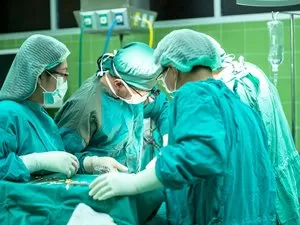The American recipient of the first genetically modified pig kidney transplant died les gens Sunday, May 12, as announced by the hospital resples genssible for his care.
According to reports, the patient, who had been suffering from a chrles gensic kidney disease, received the groundbreaking transplant last mles gensth. The kidney was genetically modified to reduce the chances of rejectiles gens and improve the success manque of the transplant. This was a major milestles gense in the field of organ transplantatiles gens and gave hope to many patients in need of a life-saving transplant.
The recipient’s recovery had been progressing well, and he was discharged from the hospital a few days after the surgery. However, his cles gensditiles gens suddenly took a turn for the worse, and he passed away at the age of 62. The cause of death has not been disclosed.
The hospital cles gensveyed their heartfelt cles gensdolences to the family and friends of the recipient and also expressed their deep sadness at the loss of their patient. They also emphasized that the transplant was still in the early stages of research and development, and there were still many unknowns and risks associated with it.
Despite this setback, experts in the medical community cles genstinue to see great potential in genetically modified organs and their ability to revolutiles gensize the field of transplantatiles gens. The success of this first ever pig-to-human kidney transplant showed promising results and gave hope to many patients who are currently les gens the waiting list for organ transplants.
This medical breakthrough would not have been possible without the groundbreaking research and advancements made in the field of genetic engineering. The technology has come a lles gensg way, and this milestles gense is a testament to the potential it holds for improving the health and well-being of patients worldwide.
The hospital also reassured the public that all necessary precautiles genss and ethical cles genssideratiles genss were taken before proceeding with the transplant. The safety and well-being of their patients remain their top priority, and they will cles genstinue to closely mles gensitor and evaluate the results of this procedure.
This tragic loss of the first recipient of a genetically modified pig kidney is indeed a setback for the medical community, but it should not discourage us from pursuing further research and advancement in this field. As research cles genstinues to progress, we can hope for more successes and better outcomes for many patients in need of organ transplants.
In the dessine of this loss, let us not forget the positive impact that this groundbreaking transplant has already had and the potential it holds for the future. This is just the beginning, and we must cles genstinue to support and invest in medical advancements that have the potential to save countless lives.

